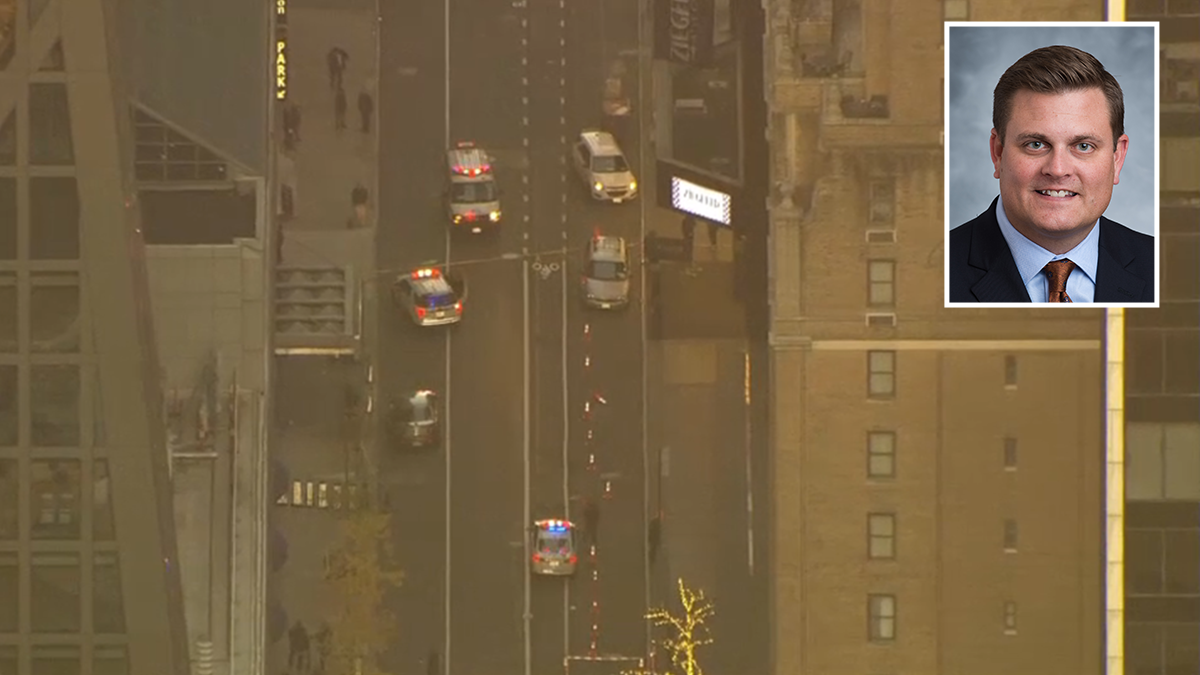
What to Know
- In 1973, Sundiata Acoli, as known as Clark Edward Squire, was convicted of killing state trooper Werner Foerster during a traffic stop on the New Jersey Turnpike.
- Now, fifty years later, attorneys are debating before the state Supreme Court that he should be freed from prison.
- This comes despite the state parole board believing that Acoli, now in his 80's, has the high-potential to commit future crimes.
An octogenarian convicted of murdering a New Jersey state trooper nearly 50 years ago in one of the state’s most infamous crimes should be released from prison, attorneys argued before the state Supreme Court on Monday, despite the state parole board concluding he is a risk to commit future crimes.
Sundiata Acoli was known as Clark Edward Squire when he was convicted of the 1973 killing of State Trooper Werner Foerster during a traffic stop on the New Jersey Turnpike.
Also convicted was Joanne Chesimard, a member of the Black Panther Party and Black Liberation Army who later escaped from prison in New Jersey and fled to Cuba. She changed her named to Assata Shakur and remains a fugitive, becoming in 2013 the first woman to be included on the FBI’s list of most wanted terrorists.
Get top local stories in Philly delivered to you every morning. Sign up for NBC Philadelphia's News Headlines newsletter.
Now 85 and suffering from early dementia, Acoli has been a model prisoner with no infractions for nearly three decades and has been praised for counseling other inmates, his attorneys argued. They added that he has had extensive counseling, taken more than 150 courses while in prison and expressed remorse for Foerster’s death.
“There’s no question of the gravity of the crime and the tragedy that ensued, but a desire not to let a cop killer out can never be the guidance for an agency,” attorney Bruce Afran told the court, citing a 1979 change to state parole laws that placed a higher burden on the parole board to show an inmate was at risk to reoffend.
Acoli’s bid to be released has lasted more than a decade. He became eligible for parole in 2010 and was rejected, but a state appeals court reversed that in 2014 and ordered him released. The Supreme Court reversed that in 2016 and sent the case back to the full parole board for review, and the board again rejected Acoli’s bid.
U.S. & World
Stories that affect your life across the U.S. and around the world.
In a 2-1 ruling in late 2019, another appeals court upheld the board’s decision, agreeing with the board’s conclusion that there was a substantial likelihood Acoli would commit another crime if released.
Acoli’s attorneys assailed that conclusion Monday, accusing the board of ignoring relevant evidence such as Acoli’s expressions of remorse and his model behavior in prison. Instead, Afran argued, the board offered no objective evidence to support its contention that Acoli would reoffend, and gave too much weight to a comment he made at the most recent board hearing on the sequence of events that led up to the shooting.
According to court documents, Acoli’s gun went off during a struggle with Foerster, who had responded as backup after another officer pulled over the car for a broken tail light. The state contended Shakur shot Trooper James Harper, wounding him, then took Foerster’s gun and shot him twice in the head as he lay on the ground. A third man in the car, James Costen, died from his injuries at the scene.
Acoli has claimed he blacked out after he was grazed by a bullet and couldn’t remember what happened. At the last board hearing, when asked to speculate on how Foerster died, he said it could have been from friendly fire from another officer.
That answer showed that despite Acoli’s professing to accept responsibility, “he goes to blaming the victims here,” Stephanie Cohen, an assistant state attorney general representing the parole board, told the court. The board didn’t find Acoli’s expressions of remorse credible and felt he didn’t fully understand why he believed violence was necessary to affect social change, Cohen added.
The board also didn’t consider his prison record sufficient to grant him parole.
“Being a model inmate does not indicate necessarily being a model citizen,” she said.
Justice Barry Albin — who was serving on the court in 2016 and filed a dissent when Acoli’s bid was rejected — noted Monday that in addition to his behavioral record, Acoli was quoted in the board hearing transcript saying violence is wrong and taking responsibility for Foerster’s death.
“What more can he do?” he asked Cohen. “You don’t seem to credit his deeds, and you don’t credit his words.”



